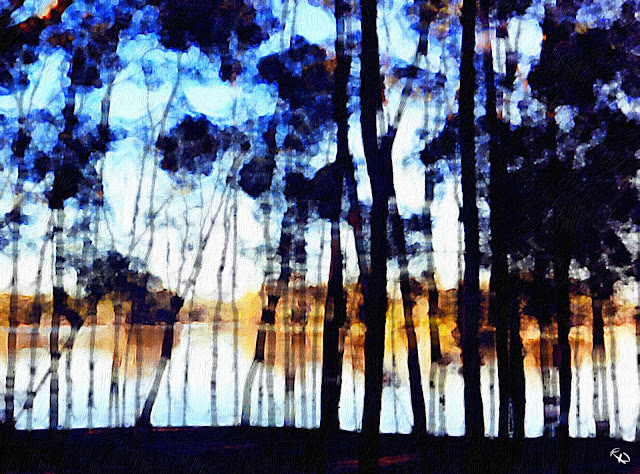The most productive places are sometimes also the most interesting. When we think of a landscape we often picture the spaces and the expanses, and while these provide the tone or the texture to our image, it is to the edges that I am constantly drawn and these are often the most productive too. It is called the 'edge effect', where energy or diversity is concentrated and systems become more complex and productive. Bill Mollison used the power of this effect elaborately and extensively in his invention and application of Permaculture principles in 'edible landscapes'.
A thing can seem more delightfully real when edges are emphasised- perhaps by increasing the tonal difference between surfaces. A subject can be made more beautiful by softening edges that distract from those which are essential. In abstraction, sometimes the edges become the subject and remain beautiful without being elaborated by reference to things as they appear to be.
Cultural diversity creates energy at the edges too. It always has. The greatest cities, trade routes and ports have always generated excitement, energy and productivity because of the interaction of contrasting cultures- which may be homogenous at their centres, but porous at the edges.
The images here are digitally modified photographs.



Aye, Life on the edge. No place better.
ReplyDeleteNice, the way you cut to the chase...
ReplyDeleteJust having a conversation with my lovely daughter about the disadvantages of being obscure. It's good that you don't seem to mind!